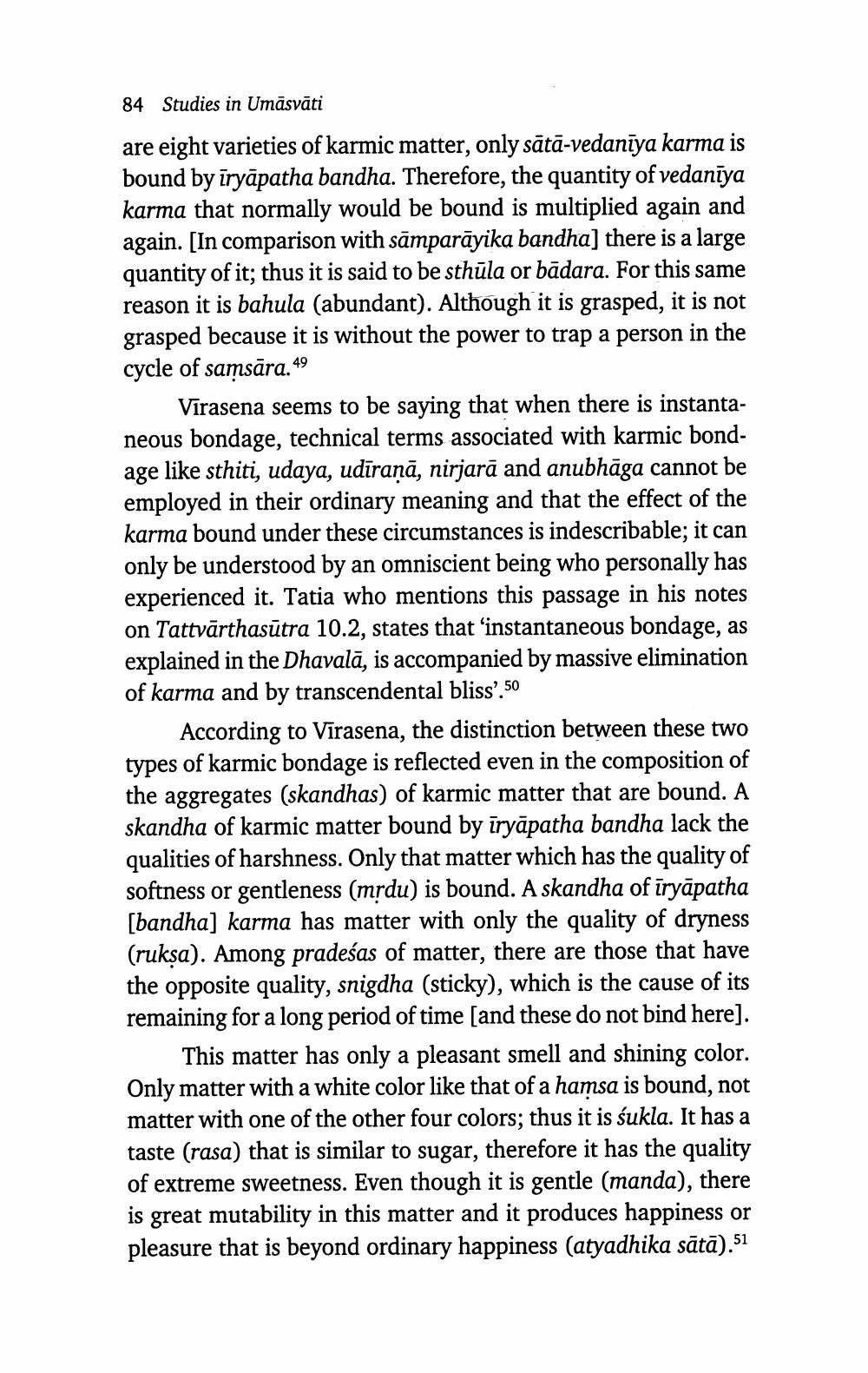________________
84 Studies in Umāsvāti are eight varieties of karmic matter, only sātā-vedanīya karma is bound by īryāpatha bandha. Therefore, the quantity of vedaniya karma that normally would be bound is multiplied again and again. [In comparison with sāmparāyika bandha) there is a large quantity of it; thus it is said to be sthūla or bādara. For this same reason it is bahula (abundant). Although it is grasped, it is not grasped because it is without the power to trap a person in the cycle of samsāra. 49
Virasena seems to be saying that when there is instantaneous bondage, technical terms associated with karmic bondage like sthiti, udaya, udīraņā, nirjarā and anubhāga cannot be employed in their ordinary meaning and that the effect of the karma bound under these circumstances is indescribable; it can only be understood by an omniscient being who personally has experienced it. Tatia who mentions this passage in his notes on Tattvārthasūtra 10.2, states that 'instantaneous bondage, as explained in the Dhavalā, is accompanied by massive elimination of karma and by transcendental bliss'.50
According to Virasena, the distinction between these two types of karmic bondage is reflected even in the composition of the aggregates (skandhas) of karmic matter that are bound. A skandha of karmic matter bound by īryāpatha bandha lack the qualities of harshness. Only that matter which has the quality of softness or gentleness (mrdu) is bound. A skandha of īryāpatha [bandha] karma has matter with only the quality of dryness (ruksa). Among pradeśas of matter, there are those that have the opposite quality, snigdha (sticky), which is the cause of its remaining for a long period of time (and these do not bind here).
This matter has only a pleasant smell and shining color. Only matter with a white color like that of a hamsa is bound, not matter with one of the other four colors; thus it is śukla. It has a taste (rasa) that is similar to sugar, therefore it has the quality of extreme sweetness. Even though it is gentle (manda), there is great mutability in this matter and it produces happiness or pleasure that is beyond ordinary happiness (atyadhika sātā).51




